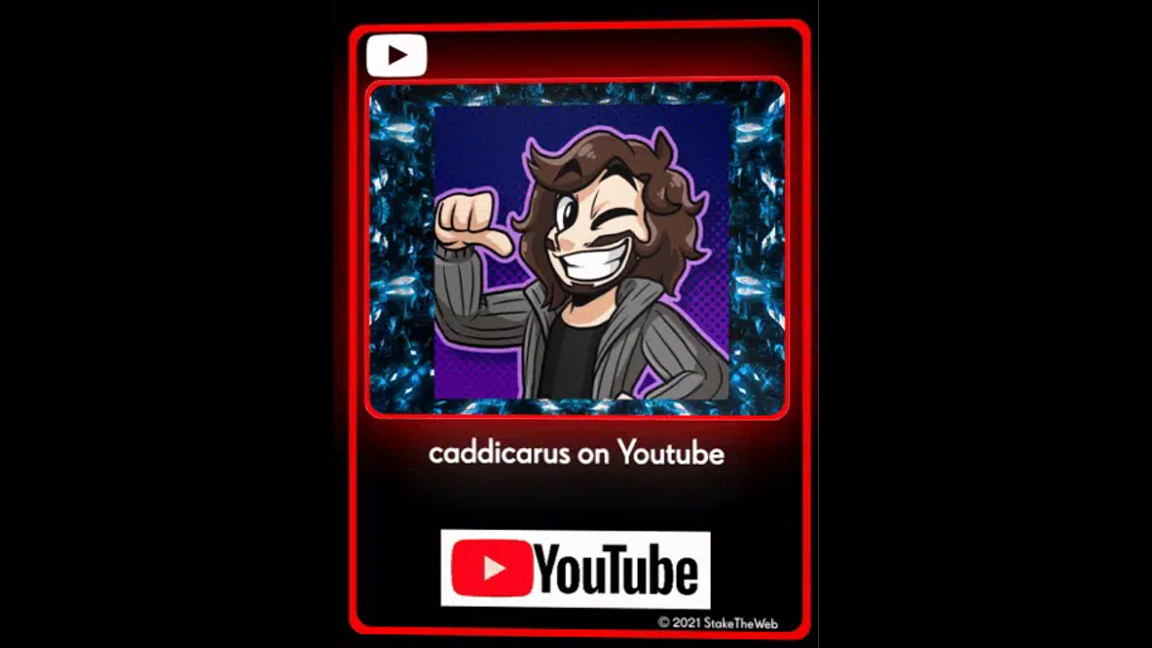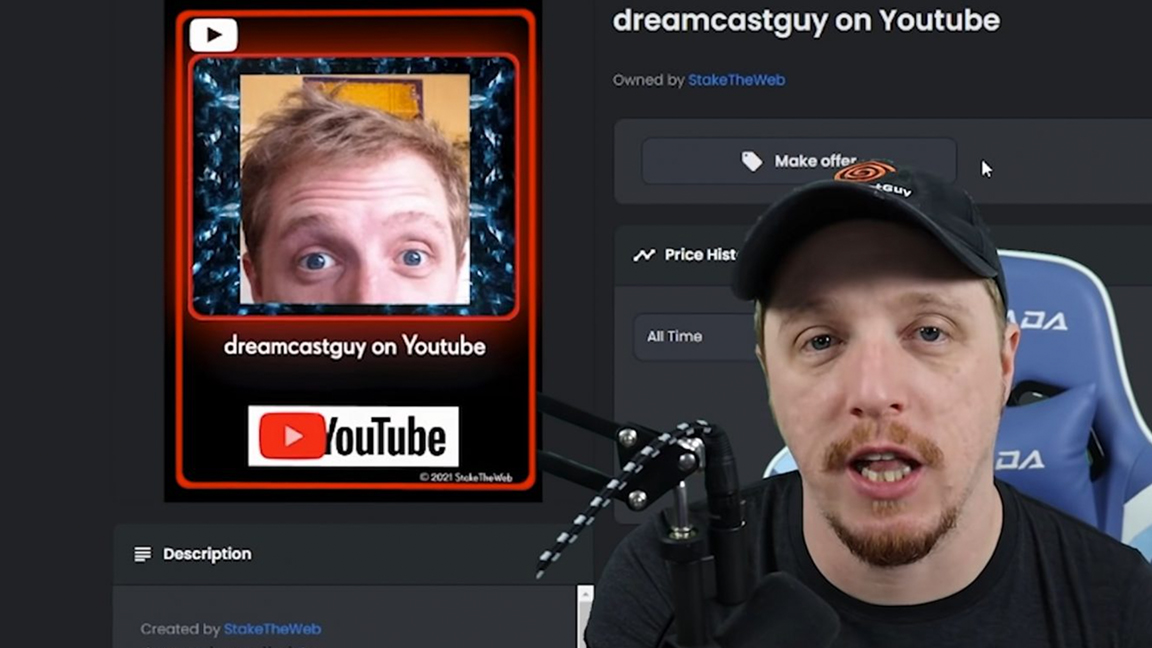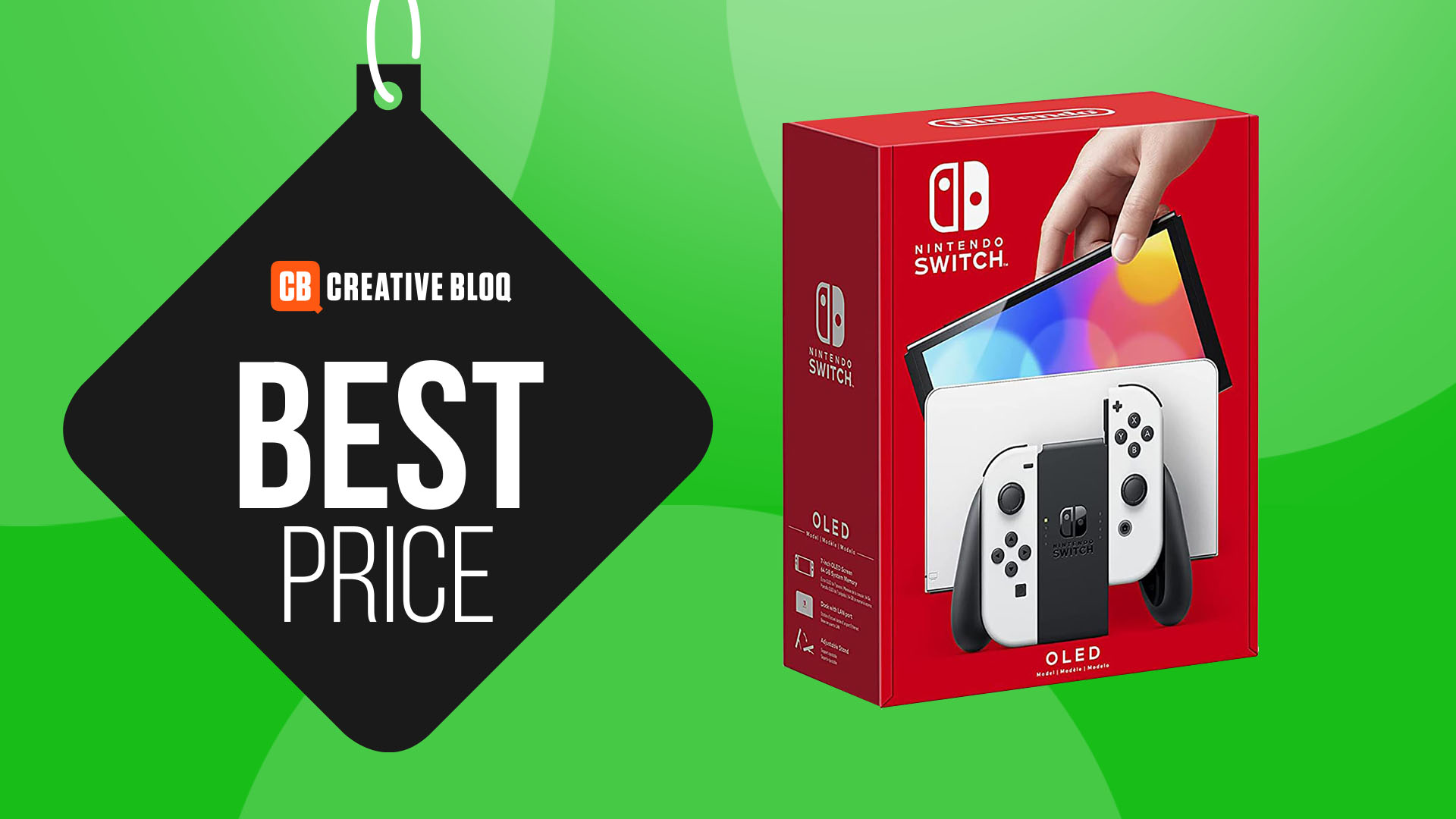
NFT theft is on the rise. Gaming YouTubers are having their likenesses stolen and turned into NFTs. Many popular YouTubers, including Alanah Pearce, James Stephanie Sterling and Caddicarus, have found their web addresses being sold on NFT marketplace OpenSea, and the 'rights' sold to the highest bidder. This would include all art and content of those YouTube channels.
Theft and copyright infringement is a dark side to the NFT boom. If you want to avoid scams then we have a guide to NFT drops that offers a guide to spotting a bad NFT. We've also rounded-up the most trusted NFT marketplaces to help you create and sell your art with a clear conscience.
NFT theft - who's affected?

One of the accused NFT users is StakeTheWeb who appears to be creating NFTs of some of the web's most-loved influencers, including James Stephanie Sterling who tweeted their annoyance: "Frankly [I'm] not surprised that some freeloading leech turned my channel into an NFT," lashed Sterling. […] "I did not consent to this, I do not want this, and it demonstrates everything I've said about how disrespectful and exploitative this market is. Scum."
Frankly not surprised that some freeloading leech turned my channel into an NFT. As gross as it is, I find it justifying - I did not consent to this, I do not want this, and it demonstrates everything I’ve said about how disrespectful and exploitative this market is. Scum. https://t.co/saqcAm5lmWJanuary 16, 2022
YouTuber and Sony Santa Monica Studios' writer Alanah Pearce not only had her likeness and photos stolen from her site, but the sellers then photoshopped the popular game developer onto a porn magazine cover.
Sharing the listing of her image only to her fans, Pearce made it very clear she did not consent to the NFT. Writing on Twitter: "Somebody has taken an image of me, that *I* own, added a trademarked porn logo to it, and “minted” it to sell for profit as an NFT...I cannot wait for the lawsuits."
In extremely predictable news I’ve just been informed that somebody has taken an image of me, that *I* own, added a trademarked porn logo to it, and “minted” it to sell for profit as an NFT. Naturally, I was not asked for permission.I cannot wait for the lawsuits 😂🤡. pic.twitter.com/7993J1e6YAJanuary 16, 2022
OpenSea is one of the largest NFT marketplaces used to create and sell the new digital art phenomenon, and it has a zero tolerance policy to art theft and plagerized content. Telling The Gamer, an OpenSea Spokesperson said:
“OpenSea supports an open and creative ecosystem in which people have greater freedom and ownership over digital items of all kinds. One of our operating principles is to support creators and their audiences by deterring theft and plagiarism on our platform.
Get the Creative Bloq Newsletter
Daily design news, reviews, how-tos and more, as picked by the editors.
"To that end, it is against our policy to sell NFTs using plagiarized content, which we regularly enforce in various ways, including delisting and in some instances, banning accounts (as was the case in this instance). We are actively expanding our efforts across customer support, trust and safety, and site integrity so we can move faster to protect and empower our community and creators.”
Art theft is not new (sadly)

NFT art theft isn't new, it's plagued digital art in general for years. Sites such as DeviantArt have tried to track and delete plagiarized digital art, and have recently expanded their technology to include NFTs and blockchains. The NFT community is also fighting back, Twitters' @NFTtheft is the tag to use if you spot a stolen piece of art. The rise of bots to skim art from the web and create NFTs is seen as a rising problem.
Here are some resources to help artists deal with the growing problem of plagiarized art on NFT marketplaces. A few of these are links that have been shared with us, but we have not had the chance test ourselves. Please add you experiences/suggestions to help others:December 27, 2021
Mainstream brands are not taking NFT theft lightly, either. As reported on Business of Fashion , French fashion house Hermès has launched a law suit against NFT creator Mason Rothschild for his collection of digital assets, called MetaBirkin. Hermès alleges 'trademark infringement and dilutive' for the use of its iconic Birkin name. The NFTs, which feature fur covered totes, sell for $42,000, a real Hermès sells for $10,000.
Read more

Thank you for reading 5 articles this month* Join now for unlimited access
Enjoy your first month for just £1 / $1 / €1
*Read 5 free articles per month without a subscription

Join now for unlimited access
Try first month for just £1 / $1 / €1

Ian Dean is Editor, Digital Arts & 3D at Creative Bloq, and the former editor of many leading magazines. These titles included ImagineFX, 3D World and video game titles Play and Official PlayStation Magazine. Ian launched Xbox magazine X360 and edited PlayStation World. For Creative Bloq, Ian combines his experiences to bring the latest news on digital art, VFX and video games and tech, and in his spare time he doodles in Procreate, ArtRage, and Rebelle while finding time to play Xbox and PS5.
